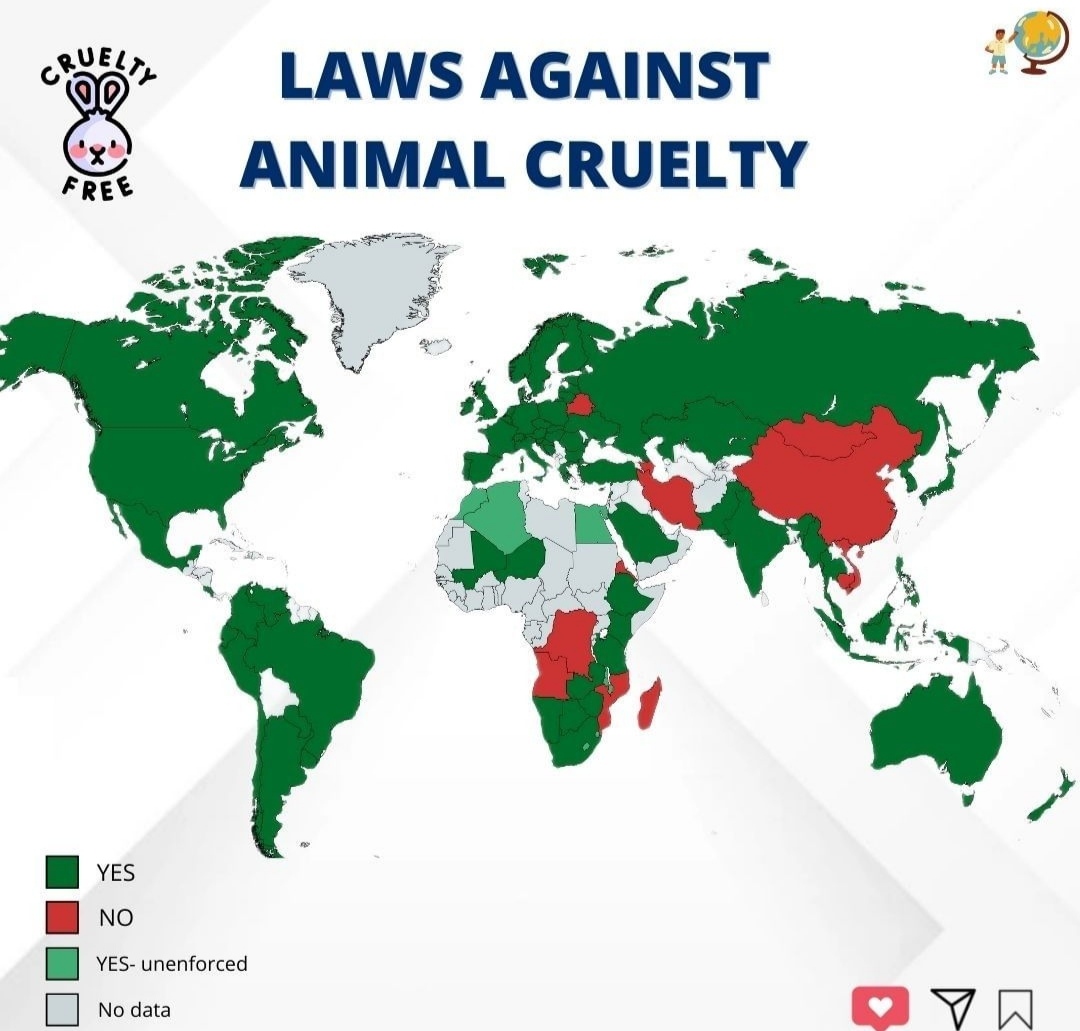Animal cruelty, in all its horrific manifestations, poses a daunting conundrum for societies worldwide. While many nations have established robust frameworks to protect animal welfare, a troubling reality persists: in certain regions, animal cruelty is either unregulated or severely underregulated. To the untrained observer, this might elicit a curious question: is animal cruelty legal anywhere? The answer is disconcertingly affirmative. A closer examination reveals a disturbing tapestry woven with the threads of negligence, lack of awareness, and cultural norms that often prioritize human needs over the rights of sentient beings.
As we traverse the global landscape, it becomes evident that some countries possess minimal, vague, or outright non-existent animal protection laws. Countries with weak legislation often justify their stance through various socioeconomic and cultural lenses, leading to an array of practices that many would deem unacceptable. Understanding the intricacies of this issue requires a thorough exploration of specific regions and their regulatory frameworks—or lack thereof.
Consider countries where animals suffer due to inadequate legal protections. In many developing nations, the focus on pressing human issues such as poverty and education can overshadow the plight of animals. Take, for instance, parts of Africa and Asia where animal welfare is often a last priority. Here, local customs and economic necessities can clash with the ethical treatment of animals, resulting in a landscape marked by neglect and abuse.
In certain regions, particularly in Southeast Asia, cultural practices can result in widespread cruelty. The consumption of dogs as a food source, for example, has drawn international ire due to the brutal methods employed in the trade. Here, laws that might discourage such practices are either absent or poorly enforced. Animals are often viewed as commodities rather than beings deserving of compassion, leading to an environment where cruelty can proliferate unchecked.
Furthermore, many countries have vague or ineffective laws that fail to encompass the diverse forms of animal cruelty that exist. Latin America, for example, presents an alarming case. Although some countries have enacted laws against animal mistreatment, enforcement remains lax, and the cultural perception of animal welfare varies significantly from one country to another. Brazil has made strides in establishing animal protection laws, yet the enforcement of these regulations is inconsistent, allowing for numerous instances of neglect and abuse to occur in the shadows.
Transitioning to Europe, the situation can be strikingly different but still flawed. While the European Union boasts stringent animal welfare standards, member states vary significantly in their local enforcement of these standards. Notably, the European Charter for the Protection of Animals posits that animals are sentient beings, deserving of considerations reflected in laws. Yet, countries like Bulgaria and Romania struggle with enforcement, leaving loopholes through which neglect can seep.
The reality is that the inadequacy of animal protection laws is not limited to any specific geographic region. In fact, even developed nations grapple with ethical challenges pertaining to animal welfare. The United States, while possessing a patchwork of animal welfare laws, is notorious for its inconsistent application across state lines. Certain states enact stringent regulations while others adopt a laissez-faire attitude towards the treatment of animals, particularly in industries like farming and entertainment.
This inconsistency raises an essential challenge for animal activists and advocates worldwide. It begs the question: how can we hold nations accountable for the treatment of animals when their legal frameworks remain rudimentary, or in some instances, virtually absent? The fight against animal cruelty is inherently a fight for awareness. Education is imperative. Activists must use every available forum, from social media platforms to community outreach, to illuminate the plight of animals suffering from legal neglect.
Another pivotal aspect of tackling this issue lies in international collaboration. By uniting across borders, advocates can share strategies and successes, leveraging collective efforts to promote more effective animal welfare legislation globally. Forming alliances with local organizations can also yield powerful outcomes, as grassroots movements often have deep roots in cultural understanding that can inform more effective advocacy. It is essential to understand local customs and practices to craft messages that resonate.
However, the challenge continues to be that of transformation. It is crucial to shift public opinion towards recognizing animals as beings deserving of rights, not merely property. This requires painstaking efforts spanning decades, confronting deeply ingrained beliefs, and imparting information that reframes animal welfare as an essential aspect of a morally sound society.
In summary, the sad reality is that animal cruelty remains legal, or at the very least, overlooked in various countries across the globe. The struggle against such injustices highlights the necessity for vigilance, education, and collective action. As we endeavor to challenge the prevailing norms and push for stronger protections, it is vital to remember that each country’s cultural context must be considered. The path forward requires collaboration, empathy, and an unwavering commitment to ensuring that animal rights are not left by the wayside in the larger struggle for human decency.
Ultimately, as we reflect on the state of animal protection laws worldwide, it becomes clear that the challenge is not just legal; it is deeply moral. It compels us to reevaluate our relationship with the beings with whom we share this planet, questioning whether a society can truly consider itself civilized when animal cruelty exists within its borders, legally or not.








